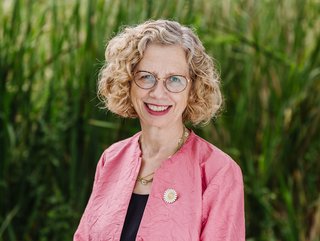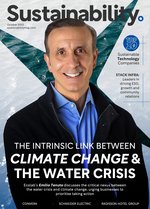
Inger Anderson has spent her life working to make a difference as an environmentalist, humanitarian, and trailblazer in the global fight against climate change.
Earlier this year, the Danish leader’s second term as Executive Director of the United Nations Environment Programme was confirmed, having assumed the position in 2019.
Humanitarianism at the heart of environmentalism
Her journey to the United Nations (UN) started, however, in teaching — in 1982 Anderson moved to Sudan to pursue a career teaching English. It was here that the foundations of her future in international development economics, environmental sustainability and strategy and operations began, when she joined SudanAid, the development and relief arm of the Sudan Catholic Bishops' Conference in 1985. Her work as an advisor over the next few years focussed on famine, drought relief, and rehabilitation, and took her to the UN.
In 1987, Anderson moved to the US to join the UN as a Programme Manager in Drought and Desertification before becoming a Global Environment Facility Coordinator for the Arab Region.
Three decades of global environmental impact
From 1999 to 2014, Anderson held several leadership positions at the World Bank including Vice President of the Middle East and North Africa; Vice President for Sustainable Development and Head of the CGIAR Fund Council. The World Bank Group and the UN have a treaty-based relationship that dates back to its founding, and through that relationship, works to build a partnership that supports Member States and contributes to effective development outcomes while preserving the distinct mandates of each institution.
Her work at the World Bank was internationally impactful in areas including agricultural productivity and enhancing food security, infrastructure investment, climate change resilience, green growth, social accountability, disaster risk management and culture and development.
The Consultative Group on International Agricultural Research — or CGIAR as it is known — is a global research partnership for a food-secure future dedicated to transforming food, land, and water systems in a climate crisis. Anderson oversaw the creation of the multi-donor trust fund that finances CGIAR research guided by the Strategy and Results Framework, The CGIAR Fund, which is now part of the CGIAR System Council.
As Head of the CGIAR Fund Council, Anderson managed allocations across the CGIAR spanning 89 countries, including its 15 top-class research centres, 3,000 partners (including national governments, academic institutions, global policy bodies, private companies and NGOs) and 770,000 germplasm accessions.
Over the past decade, the CGIAR has improved climate resilience in farming communities in 21 countries through the establishment of climate smart villages which test and scale resilient food system innovations. Using innovative, accessible strategies to unite environmental and humanitarian issues — such as the development of climate smart technology to reduce poverty — is a key, consistent theme in Anderson’s career.
Uniting the world: The UN Environment Programme
For over 50 years, The United Nations Environment Programme (UNEP) has worked with governments, civil society, the private sector and UN entities to address humanity’s most pressing environmental challenges — from restoring the ozone layer to protecting the world's seas and promoting a green, inclusive economy.
UNEP is the leading global authority on the environment, working to inspire, inform, and enable nations and peoples to improve their quality of life without compromising that of future generations.
UNEP is driving transformational change on the triple planetary crisis:
- Climate change
- Nature and biodiversity loss
- Pollution
UNEP’s work is focused on helping countries transition to low-carbon and resource-efficient economies, strengthening environmental governance and law, safeguarding ecosystems, and providing evidence-based data to inform policy decisions.
As Executive Director, Anderson leads the organisation in supporting its 193 member states to achieve the Sustainable Development Goals and live in harmony with nature. Notably, she has been a defining voice in brokering the legally binding agreement to end plastic pollution by 2024, as agreed by 175 nations.
“This is the most significant environmental multilateral deal since the Paris accord,” Anderson said of the agreement.
“It is an insurance policy for this generation and future ones, so they may live with plastic and not be doomed by it.”







